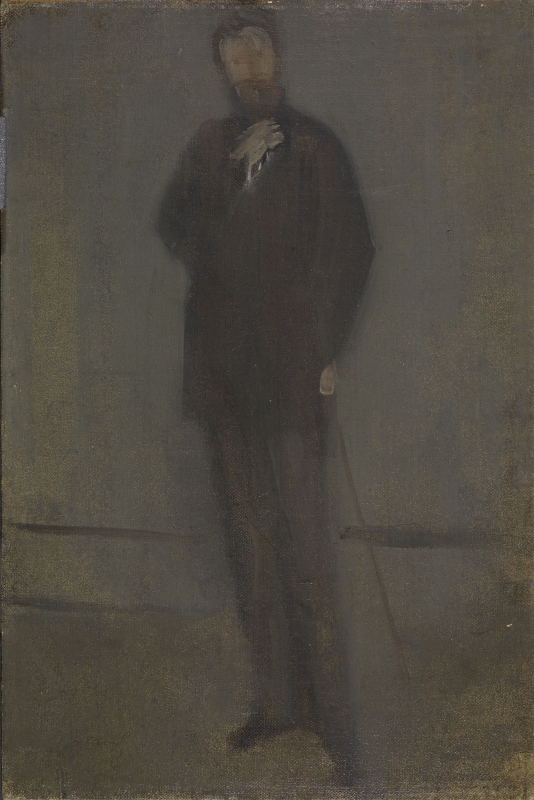Composition
Andrew McLaren Young (1913-1975) thought that it was probably the earliest study for the portrait of Leyland (Arrangement in Black: Portrait of F. R. Leyland [YMSM 097]) and suggested that the streak on the left might be where Whistler had tried out three different positions for a butterfly. 1 The figure is standing three-quarter left, the opposite way to that in the final painting, but facing the viewer.
Linda Merrill writes:
'An oil sketch embodying an early conception of Whistler's portrait portrays a more mature man, fully bearded and sturdily authoritative. Leyland wears a fashionably short frock coat that breaks up the long lines of his figure, which forms a black silhouette against a vacant gray wall.' 2
Technique
A fine weave canvas, thinly painted, almost bare of paint at the right edge. There are blurred edges and signs of alterations to the outlines of the figure, particularly the legs. The whole figure may originally have been slightly further left. Short, rounded brushstrokes in pale flesh-pink paint roughly define the hands and face.
Conservation History
It appears to have been either abraded or rubbed down at the edges, and round the feet and legs of the model, where the canvas shows through the paint. An undated photograph (before 1980?) suggests the abraded area at lower right has been restored. It is also slightly abraded at the edges, probably from the frame.
Frame
A broad, gilded, wooden modern frame.
Last updated: 18th April 2021 by Margaret








